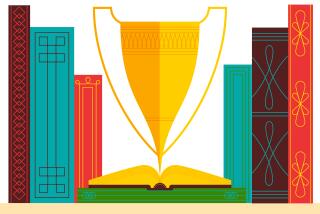Author Ivan Doig, 75, dies
- Share via
Ivan Doig, the author known for his stories of the American West, died Thursday at home in Seattle of multiple myeloma, his publisher Riverhead Books announced. He was 75.
Beginning with “English Creek” in 1984, Doig wrote a number of novels set in fictional Two Medicine Country, Mont., based on the region where he came of age.
Doig was born in 1939 in White Sulphur Springs, Mont. His father was a ranch hand and his mother, who died when he was 6, was a ranch cook. His 2012 novel “The Bartender’s Tale” was inspired by his experiences being taken by his single-parent dad into the saloons where he’d hire workers.
----------
For the record
April 10, 12:15 p.m.: An earlier version of this post reported that Doig’s most recent novel was “The Bartender’s Tale,” published in 2012. Doig’s novel “Sweet Thunder” was published in 2013.
------------
After being raised along the edge of the Rocky Mountains, Doig went to college in the Midwest, where he became a journalist. In 1966, he and his wife Carol moved to Seattle, where he got a PhD and decided to write books.
His first was the memoir “This House of Sky” (1979), which was a finalist for the National Book Award and established him as a writer of the American West. He was a recipient of the Western Literature Assn.’s lifetime Distinguished Achievement award and in 2007, the Center for the American West awarded him the Wallace Stegner Award.
“One kinship I have always felt with Wallace Stegner is the square-built Western kid sort,” Doig wrote for the Los Angeles Times years earlier, in 1992. “That although we both are descendants of a West of hell-raisers, we ruefully recognize ourselves as at most born to raise heck.”
He published more than a dozen books, including the bestseller “The Whistling Season” and “Last Bus to Wisdom,” which is slated to be published in August.
“I don’t think of myself as a ‘Western’ writer. To me, language -- the substance on the page, that poetry under the prose -- is the ultimate ‘region,’ the true home, for a writer,” he wrote on his website. “If I have any creed that I wish you as readers, necessary accomplices in this flirtatious ceremony of writing and reading, will take with you from my pages, it’d be this belief of mine that writers of caliber can ground their work in specific land and lingo and yet be writing of that larger country: life.”
He is survived by his wife Carol, a longtime researcher and editor of his work.
Book news and more; I’m @paperhaus on Twitter
More to Read
Sign up for our Book Club newsletter
Get the latest news, events and more from the Los Angeles Times Book Club, and help us get L.A. reading and talking.
You may occasionally receive promotional content from the Los Angeles Times.









